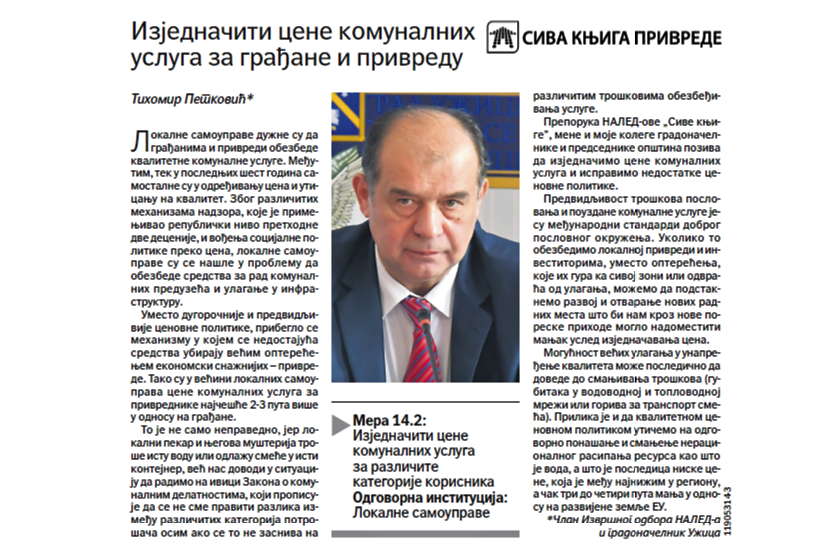Align the prices of utility services for citizens and businesses
Local governments are oblige to ensure good-quality utility services to citizens and businesses. However, they have been independent in determining the prices and influencing the quality for the past six years. Due to various mechanisms of supervision applied from the national level for the past two decades, and the socially determined prices, the local governments have faced a problem in ensuring the funds for the work of utility companies and investing in local infrastructure.
Instead of a long-term and more predictable pricing policy, we experienced a mechanism where the lack of funds were compensated by imposing a higher burden to those being economically stronger - the businesses. In the majority of local governments, the prices of utility services are most commonly 2-3 times higher than for the citizens.
This is not only unfair, since a local baker and their customer use the same water or dispose garbage in the same bin, but it also makes us walk on a thin line observing the Law on Utilites which prescribes that various categories of consumers must not be treated differently, unless this is based on different cost of providing the service.
A recommendation from NALED's Grey Book appeals to myself and my fellow mayors to align the prices of utility services and fix the discrepancies in the pricing policy.
Predictable costs of doing business and reliable utility services are international standards of a business friendly environment. If we provide these services to local businesses and investors, instead of imposing a burden that pushes them towards the shadow zone or discourages their investments, we can stimulate economic growth and new jobs, which could compensate for the lack of funds through new tax revenues.
Possibility of higher investments towards improving the quality of services could lead to reduced expenses (reducing the losses in water supply or heating network, or less fuel for garbage transportation). By establishing an aligned pricing policy, we could also influence a responsible behavior, without irrational waste of resources such as water, which is frequently seen due to low prices - being among the lowest in the region, and up to three or four times lower compared to the developed EU countries.

This website uses cookies to ensure the best user experience. By continuing to browse the site, you consent to the use of cookies.
CONTINUE LEARN MORE